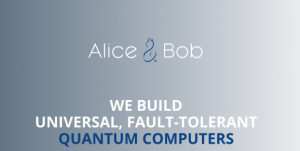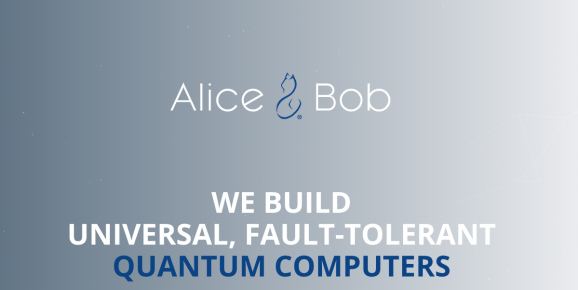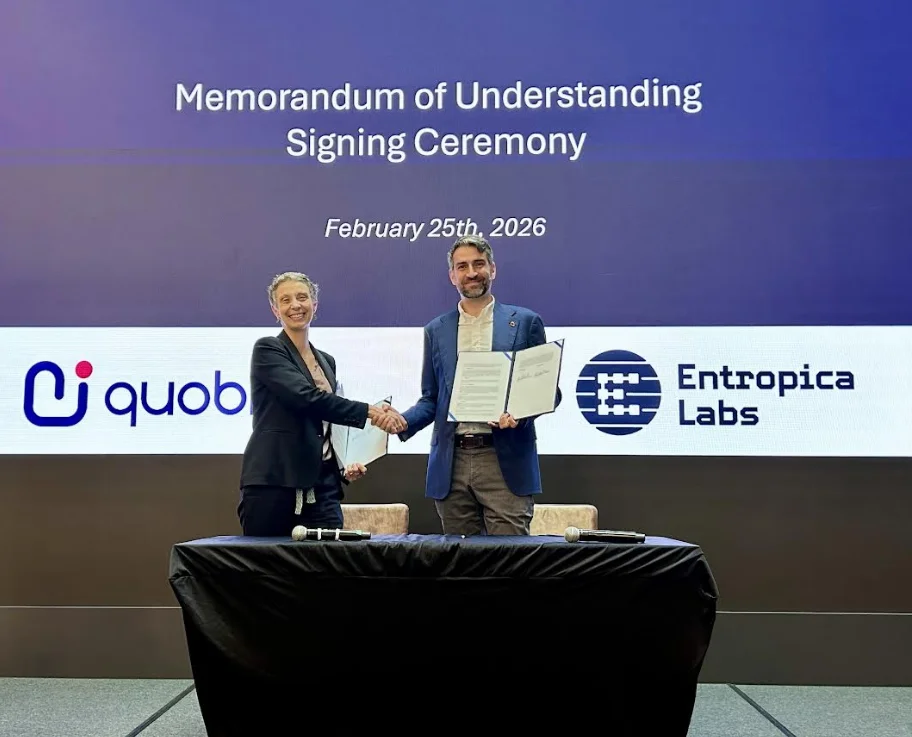
Alice&Bob has raised $3.3 million to bolster its quest to build a universal error-free quantum computer, according to VentureBeat.
Elaia Partners and Breega led the funding round for the Paris-based startup. The company is using research that has been developed across a consortium of French universities and research institutes and has developed its first prototype.
The founders claim they are close to making an error-free quantum computer, which is one of the fundamental scientific problems that has limited development of more powerful quantum computing.
“We’re really aiming for the perfect quantum computer and not settling for anything in between,” Alice&Bob CEO Théau Peronnin told the magazine.

Peronnin and his cofounder, Raphaël Lescanne, officially created Alice&Bob in February to commercialize research being done across France to target the stubborn issue of “quantum errors.”
The cofounders are affiliated with France’s Ecole Normale Supérieure, the Paris and Lyon campuses respectively.
The company name refers to standard scientific lingo that labels the sender (point A) and the receiver (point B) of a message as “Alice and Bob.”
The pair said the research they are using offers several approaches to limit some errors and is on track to solve other errors. One prototype reduced the number of errors by a factor of 300 using a process that automates the corrections.
“Our prototype shows how autonomous error correction can suppress exponentially some of the errors in a quantum computer,” Peronnin said.
That would allow them to build a quantum machine that uses a simpler and more stable design. That fault tolerance would be the key to building breakthrough hardware, they said. With this new generation of computing, Peronnin said hardware will be the key differentiator for companies that operate in this field, rather than the software or algorithms that run on it.
“The one who will be controlling the hardware will be controlling the chain of value because it’s the hard part,” he said.
What makes this project unusual is the widespread cooperation of France’s academic community. Unlike Silicon Valley where universities such as Stanford frequently spin out research into new startups, France’s academic community has traditionally been less entrepreneurial.
The company has set a target of 5 years for its first fully operational quantum computer, which if delivered would cut in half the 10 years currently predicted for an error-free quantum computer. There has been ongoing debate on whether quantum computers will really be able to replace current processing architectures, or whether they will only be superior for certain narrowly defined tasks.
The Alice&Bob team argues that their approach will eventually be able to expand the impact of quantum computers to a much wider range of industries and tasks.
“If you have a fault-tolerant universe on a quantum computer, you can already pretty much change the face of the world,” Peronnin said. “That’s mostly due to the new types of chemistry and material science that you will enable.”















